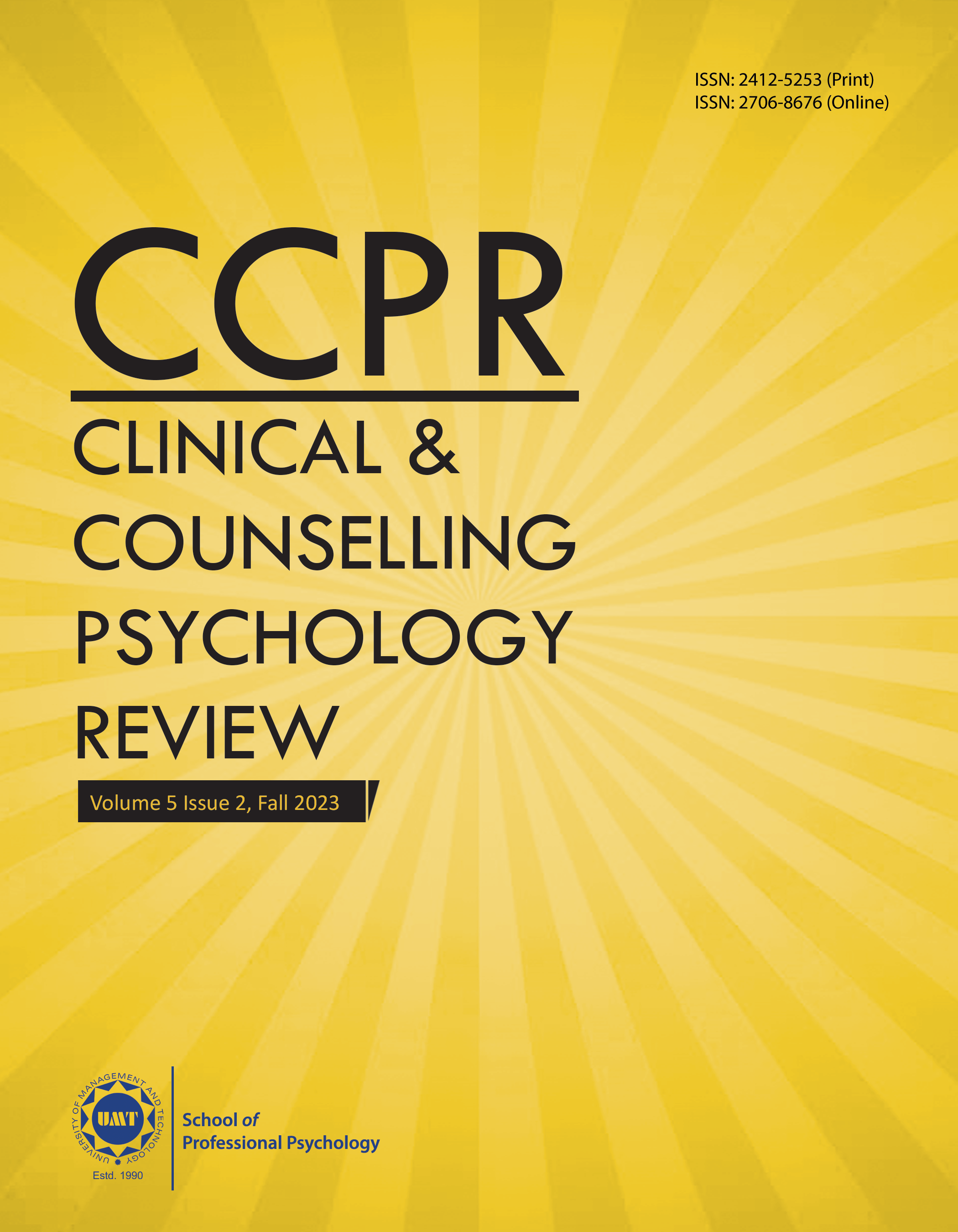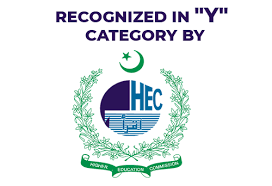Parenting Styles, Academic Self-Efficacy, and Decision-Making Power in University Students
Abstract
 Abstract Views: 0
Abstract Views: 0
This study aims to examine the association between parenting styles, academic self-efficacy, and decision-making power among university students. The sample included 200 undergraduate and postgraduate students (100 men and 100 women) aged 18-28 years. Purposive sampling technique was used to select the participants. They were surveyed using a short version of the Parental Authority Questionnaire, Academic Self-Efficacy Scale, and Decision-Making Collaboration Scale. Correlation analysis was employed to assess the relationships between variables. Independent sample t-test was used to examine gender differences and regression analysis was used to identify the predictor variables for decision-making power. The results indicated a positive relationship between authoritative parenting styles, decision-making power, and academic self-efficacy among university students (p < .05). Regression analysis indicated authoritative parenting, permissive parenting, curricular activities, utilization of resources, and adjustment as predictors of decision-making power in university students. The results of an independent sample t-test showed significant gender differences between authoritarian parenting, curricular activities, and time management. Based on the results, the study concluded that the decision-making abilities of university students are significantly shaped by parenting styles, academic self-efficacy, and factors such as curricular activities and resource utilization. Further, gender differences in certain aspects highlight the need for tailored interventions. Overall, this research provides valuable insights for fostering holistic student development.
Downloads
References
Aldhafri, S. S., Alrajhi, M. N., Alkharusi, H. A., Al-Harthy, I. S., Al-Barashdi, H. S., & Alhadabi, A. S. (2020). Parenting styles and academic self-efficacy beliefs of Omani school and university students. Education Sciences, 10(9), Article e229. https://doi.org/10.3390/educsci10090229
Alkharusi, H., Aldhafri, S., Kazem, A., Alzubiadi, A., & Al-Bahrani, M. (2011). Development and
validation of a short version of the Parental Authority Questionnaire. Social Behavior and Personality, 39(9), 1193–1208. https://doi.org/10.2224/sbp.2011.39.9.1193
Al-Rashidi, A. H., & Abdel-Al Ibrahim, A. K. (2023). The correlated relationship between academic help-seeking and academic self-efficacy among university students. Conhecimento & Diversidade, 15(37), 281–309. https://doi.org/10.18316/rcd.v15i37.10954
Altaf, S., Hassan, B., Khattak, A. Z., & Iqbal, N. (2021). Relationship of parenting styles with Decision-Making and Self-concept among adolescents. Foundation University Journal of Psychology, 5(2). https://doi.org/10.33897/fujp.v5i2.318
Anderson, C. M., Martin, M. M., & Infante, D. A. (1998). Decision‐Making Collaboration Scale: Tests of validity. Communication Research Reports, 15(3), 245–255. https://doi.org/10.1080/08824099809362120
Cenkseven-Önden, F., Kirdök, O., & Isik, E. (2010). High school students' career decision-making pattern across parenting styles and parental attachment levels. Electronic Journal of Research in Educational Psychology, 8(1), 263–280. http://dx.doi.org/10.25115/ejrep.v8i20.1379
Chemers, M. M., Hu, L., & Garcia, B. F. (2001). Academic self-efficacy and first year college student performance and adjustment. Journal of Educational Psychology, 93, 55–64. http://dx.doi.org/10.1037/0022-0663.93.1.55
Cheng, H. (2023). The effects of academic self-efficacy on the academic achievement of Chinese and foreign university students. SHS Web of Conferences, 180, Article e04014. https://doi.org/10.1051/shsconf/202318004014
Coplan, R. J., Hastings, P. D., Lagacé-Séguin, D. G., & Moulton, C. E. (2002). Authoritative and authoritarian mothers’ parenting goals, attributions, and emotions across different childrearing contexts. Parenting, Science and Practice, 2(1), 1–26. https://doi.org/10.1207/s15327922par0201_1
Davids, E. L., Roman, N. V., Leach, L., & Sekot, A. (2015). A model examining the relationship between parenting and decision making on healthy lifestyle behaviors of adolescents in rural Western Cape, South Africa. African Journal for Physical Health Education, Recreation and Dance, (Suppl 1), 272–292.
Gafoor, K. A., & Ashraf, M. P. (2007). Academic Self-Efficacy Scale. University of Calicut.
Gota, A. A. (2012). Effects of parenting styles, academic self-efficacy and achievement motivation on academic achievement of university students in Ethiopia [Doctoral dissertation, Edith Cowan University]. https://ro.ecu.edu.au/theses/461/
Gonzalez, C. (2017). Decision-making: A cognitive science perspective. In S. E. F. Chipman (Ed.), The Oxford handbook of cognitive science (pp. 249–263). Oxford University Press.
Jones, W. P., & Loe, S. A. (2013). Optimal number of questionnaire response categories: More may not be better. Sage Open, 3(2). https://doi.org/10.1177/2158244013489691
Loureiro, R. J. (2020). Decision making in adolescents: A multifaceted construct. Revista Brasileira de Crescimento e Desenvolvimento Humano/ Brazilian Journal of Human Growth and Development, 30(2), 160–163. https://doi.org/10.7322/jhgd.v30.10362
Lopez-Garrido, G. (2020). Self-efficacy. Simply Psychology. https://www.simplypsychology.org/self-efficacy.html
Michaels, L. (2016). Association between parenting practices and decision-making competence in emerging adults: A prospective study [Bachelors thesis, Oregon State University].
Rai, S. (2016). The relationship between self-efficacy and decision-making on academic performance of adolescents. Proceedings of the International Conference on Emerging Technologies in Engineering, Biomedical, Medical and Science (ETEBMS - 16) (pp133-136). https://ijtre.com/images/scripts/16129.pdf
Reyes, N. (2019). The effects of parenting and identity on decision-making styles [Bachelor thesis, University of Central Florida]. https://stars.library.ucf.edu/honorstheses/493/








